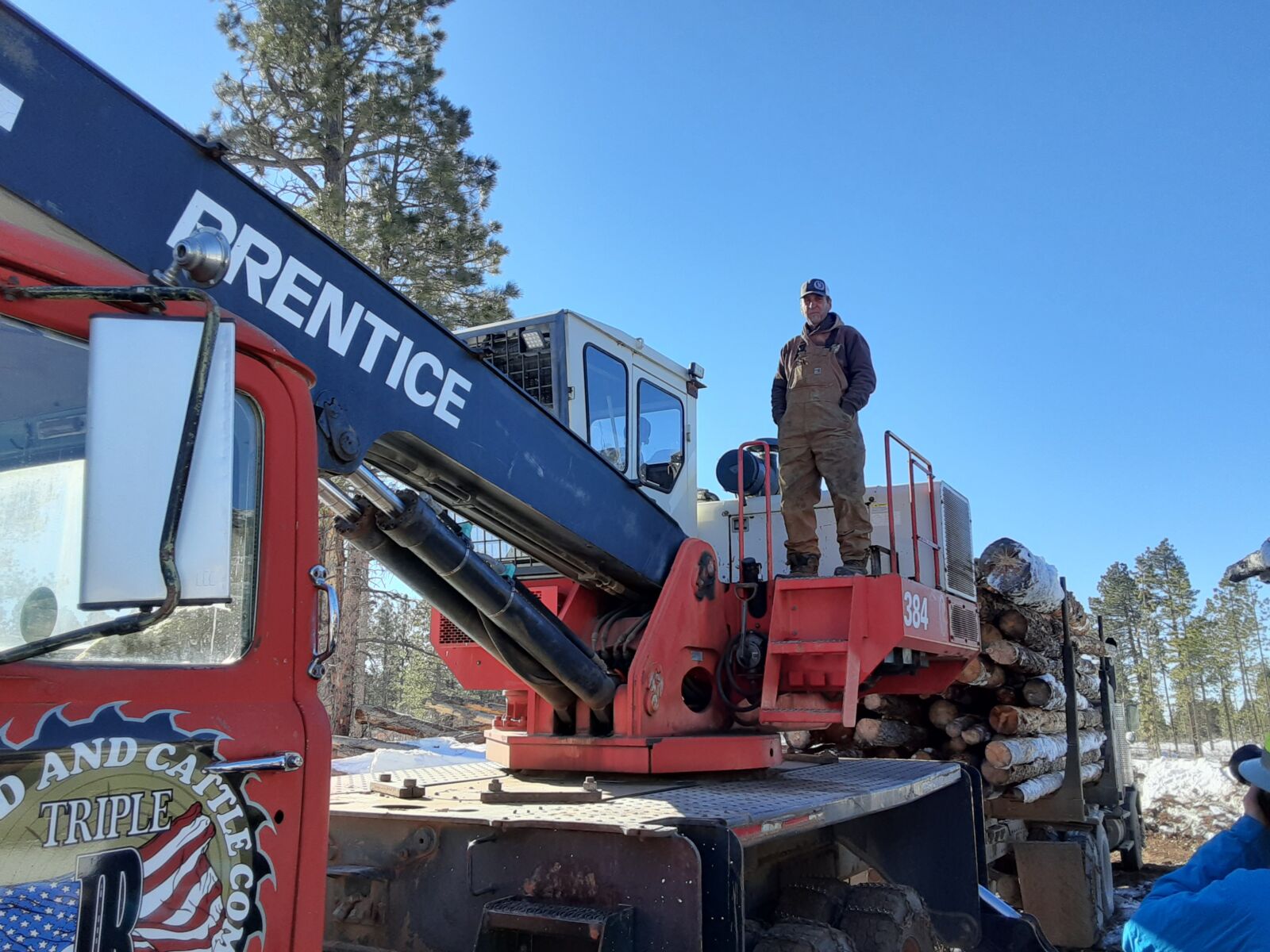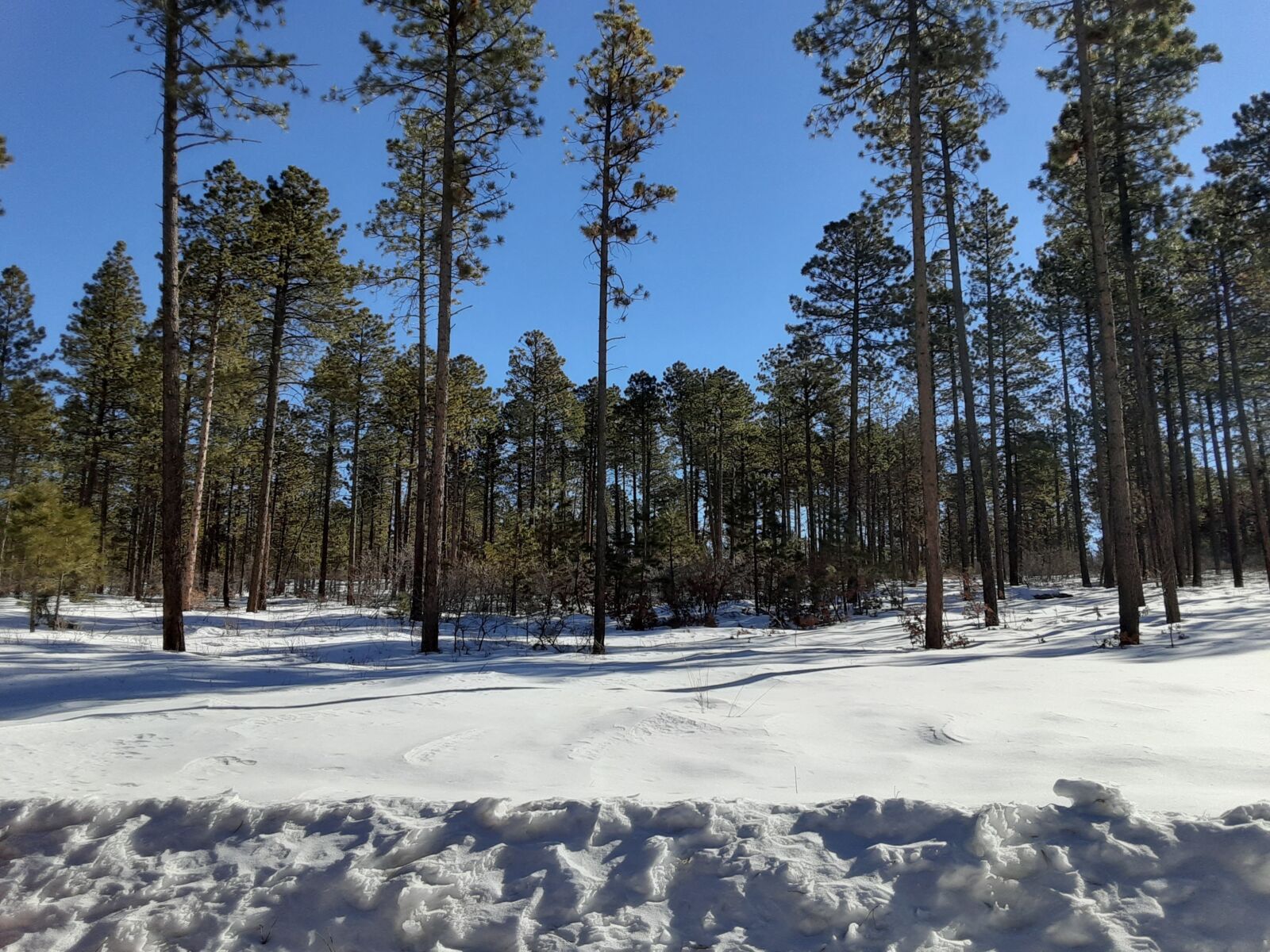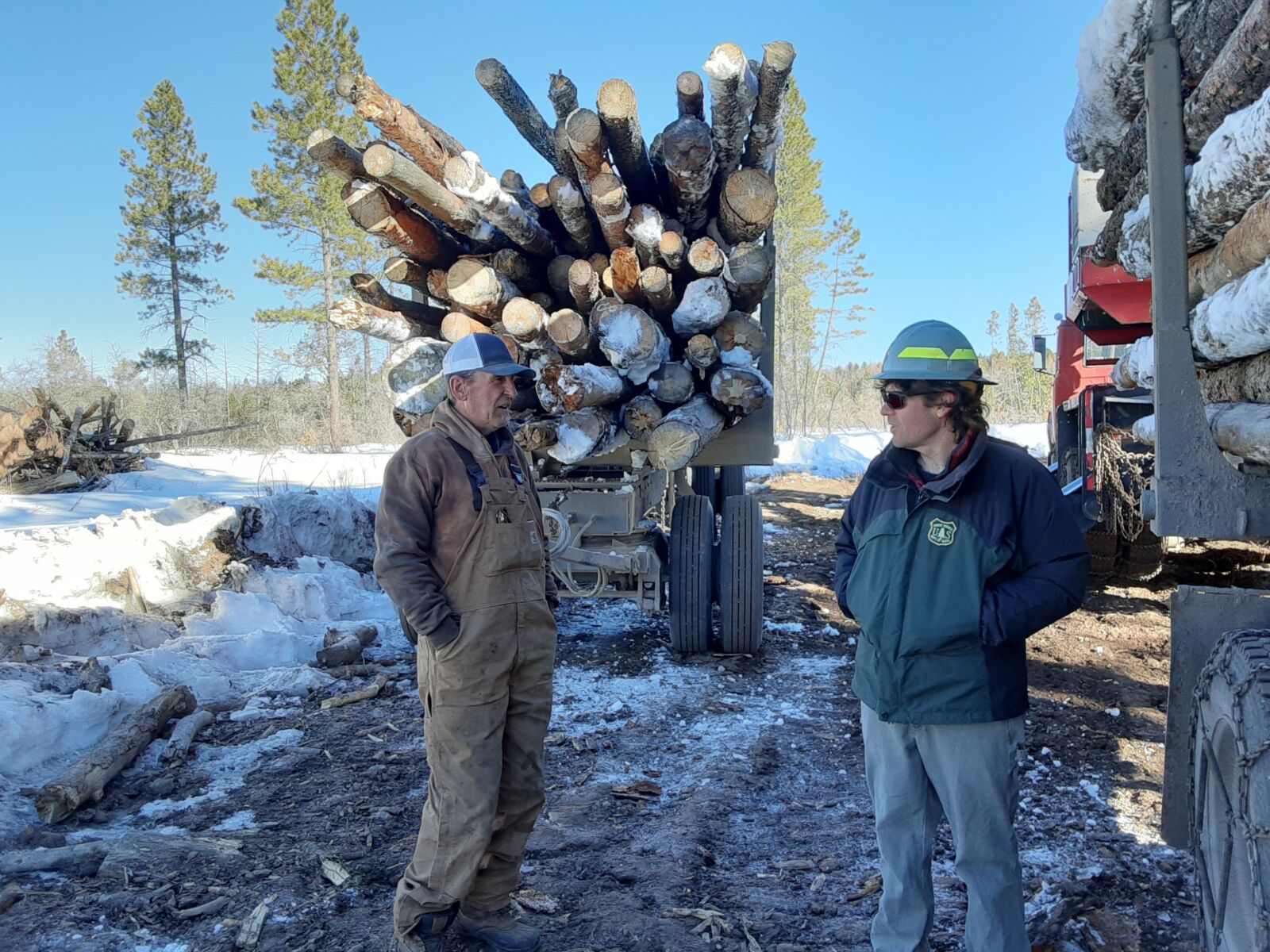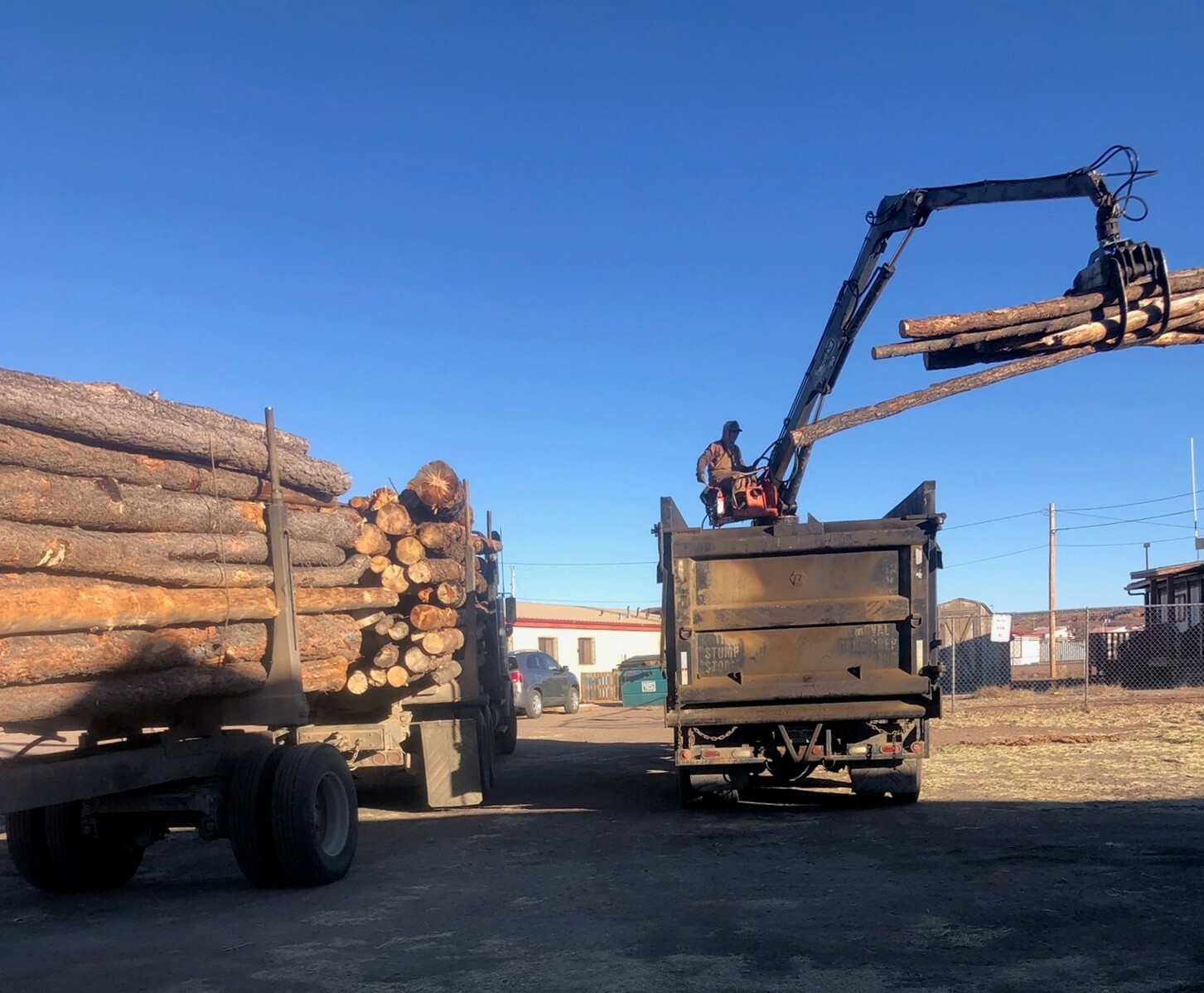This guest blog was adapted from an article written by Abe Proffitt and Lorena Williams from the San Juan National Forest, USDA Forest Service. The article was originally published in “Partnership Peaks: San Juan National Forest Partner Stories, Opportunities, and Updates.
On a crisp 28-degree morning in an area called “the Glade” just east of Cahone, CO, the only objects not frozen in a carpet of snow are the Prentice 384 Loader and the towering stacks of ponderosa it’s about to move. One by one, the loader suspends each log high into the air and gently nestles it into one of two 40-ton logging trucks parked on the frozen dirt road. Running this behemoth with a smile is NFF contractor Jim Broderick, owner and CEO of Triple JR Logging Co., and he’s nearly finished loading the truck when we arrive.

Prentice 384 loader ready to begin work for the day.
The logs are part of a collaborative effort called Wood for Life (WFL) – a pilot program on the San Juan National Forest aimed at increasing forest resiliency against wildfires and bark beetles while providing firewood to members of the Navajo Nation. Last fall, the Dolores Ranger District entered discussions with the NFF and the Chinle Chapter House about piloting WFL on the San Juan National Forest.
The missing piece of the puzzle was funding. The NFF reached out to Weston Backcountry, a long-standing partner, who immediately kicked in funding to support the initial hauling costs. After months of planning and waiting for the ground to freeze, the Dolores Ranger District kicked off the program with its first load of wood in early February to the Chinle Chapter House.
When the last log is removed from the road, Jim Broderick will have loaded a total of 6 trucks with wood – which roughly comes out to 84 cords of firewood. Upon arrival in Chinle, a tribal Americorps crew processes and distributes wood to community members across the reservation.

San Juan National Forest.
The wood is sourced from the Dolores Ranger District’s Lake Canyon and Lone Pine Vegetation Management Projects. Small-diameter and low-value logs (perfect for firewood) are being removed to increase resistance to bark beetles and wildfires while promoting resilience over time.
Before the WFL Program, the San Juan National Forest didn’t have a reliable outlet of scale for this wood, and in many cases, it was burned in slash piles. Supervisory Forester David Casey, who is managing the WFL Program on the Dolores District, is excited about the program’s potential.
“What we have are overstocked stands of trees infected with bark beetles causing heavy mortality and increased fuel loads. Younger trees are less susceptible to bark beetles but tend to have little resistance to fire compared to larger diameter trees. Our goal is to have a diverse stand that is resilient to both insects and destructive fires. By doing calculated thinning and prescribed burns, we hope that the seed crop comes in, new regeneration sprouts, and we see the return of a healthier ecosystem.” Casey added, “The WFL Program is really a win-win for everyone. These management actions are a step toward a more desirable condition for the National Forest, and we’re providing a much-needed resource to partners.”

Abe Proffitt
A wood shipment is loaded onto the back of a truck.
The WFL Program began in 2018 as a collaboration between the Kaibab and Coconino National Forests, the Navajo and Hopi Nations, NFF, and other partners to counter the home heating crisis created by the Navajo Generating Station and Kayenta Coal Mine closing in 2019. Many community members on the Hopi and Navajo Nations relied on coal to heat their homes.

Wood being piled onto the back of the truck by the loader.
During the immediate aftermath of the closures, the Coconino and Kaibab National Forests gave out free firewood cutting permits to tribal members. However, those forests are still several hours’ drive away from tribal lands. For many tribal members, especially elders, that solution just wasn’t feasible. Shortly after that, the NFF got involved in helping fund and coordinate efforts between local organizations and the National Forests. Since its inception, over 7,000 cords of wood have been delivered to local tribal governments and nonprofits through WFL.
--------
Bringing people together has always been a superpower of the NFF. But we can’t do it without our supporters, and that includes you. Please consider making an unrestricted gift today so we can provide the absolute best collaborative services tomorrow. Simply click here. We – and all our partners – thank you!

